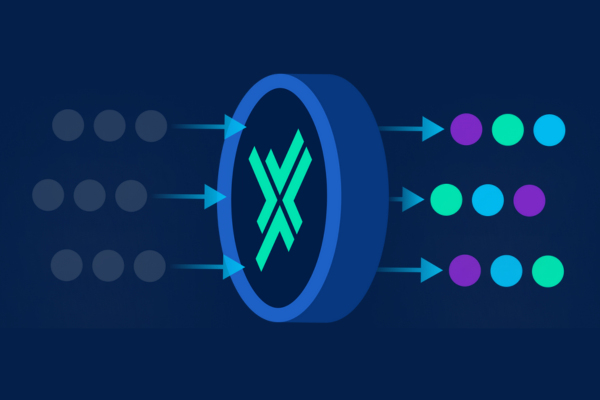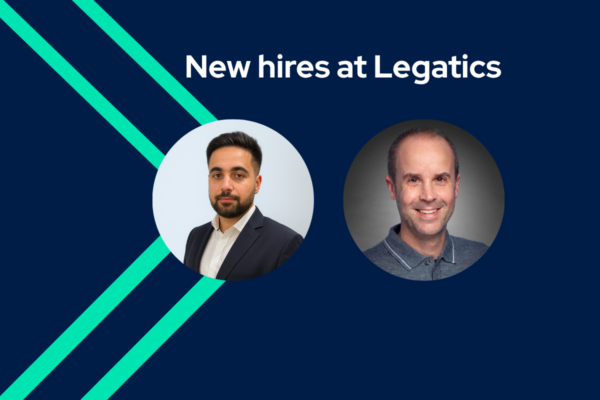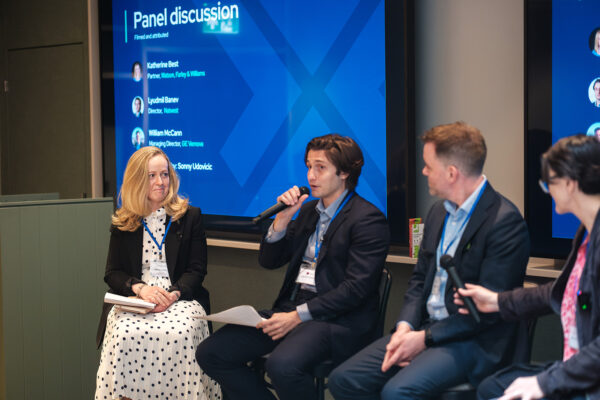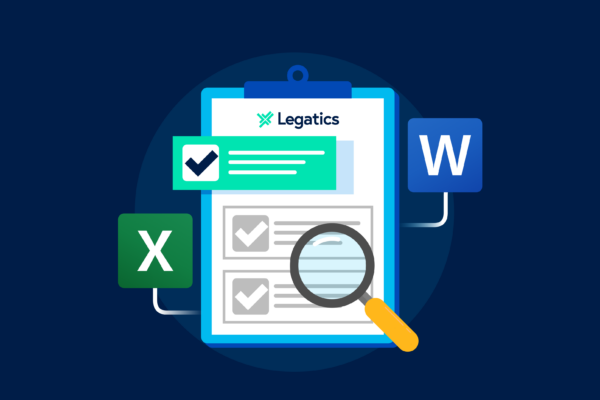Legatics is legaltech software truly created by and for lawyers. Many of our senior team, including the CEO/Founder, are former lawyers themselves who left the profession because of the challenges they faced daily. But they haven’t stopped caring about those issues—now they spend their days working on a solution that can improve the daily working lives of junior lawyers.
Challenges in the law profession
Asking the six former lawyers in our leadership team about the challenges in the law profession, there were a few common themes.
“In theory, [the job] sounded fantastic,” said Dan Porus, CCO of Legatics. “It was really exciting to be working on this huge transaction that’s on the front page of the paper. But the reality of what I was doing day to day was quite menial. And I didn’t feel that connected to the bigger picture.”
Luke Vancliffe-Davis, Head of Business Development, said something similar. “When I got to actually practicing as a lawyer, I realized that [there wasn’t a good] work-life balance.”
Overwork and work-life balance weren’t the only issues raised. Our Product Lead, Ryan Turner, added another issue: the fact that law firms are not always the most adaptable environments. “There was [little consideration of] is there a better way to do this?” said Ryan.
This is something that our Engagement Manager, Unna Bhatt, echoed in her interview. “One thing I think could have been done differently is [encouraging] different ways of working,” Unna said. “I didn’t want to be firefighting the whole time, I wanted to go somewhere and make a real change.”
Making a change
As most people know, law is a profession that requires advanced qualifications and can be a rewarding career—so the decision to leave isn’t taken lightly. But for our team, the problems added up, and eventually, they ended up at Legatics.
Anthony Seale, CEO and Founder of Legatics, said that he eventually decided the work he was doing as a junior lawyer could be better structured and more automated.
“My brain always seemed to work differently than those around me. I think I was the lawyer who picked up a contract and was disappointed that there weren’t any graphs or not enough numbers in it,” said Anthony. “And when I approached the world of junior lawyer tasks, I started thinking in terms of automation process systems platforms. And before you know it, I was starting a platform for the management of legal transactions.”
The benefits aren’t just for lawyers, though. Dan Grant-Smith, Head of Engagement, says that the process improvements will lead to more transparency and collaboration with clients. “Our clients are happier, but also our lawyers are doing less menial work—they’re less bogged down in low-value activities, and they can focus more on adding value to their clients and to the processes that are powerful,” he said.

Why join Legatics?
Ryan said that his exposure to legaltech at his previous firm, Allen & Overy, helped him decide to move to Legatics. “A&O were really great with technology,” said Ryan. That’s where he first used Legatics himself and saw an immediate benefit.
“[W]hen I was using Legatics on a transaction, I had to make a closing sale or transaction Bible. In the past, this could take up to one month, two months. Using Legatics, the last transaction I did, the closing Bible took me two minutes and 38 seconds to create. It was perfectly renumbered, and it had an index… and I got to the pub earlier.”
Unna joined Legatics because she “loved the mission.” She added, “I love the idea that there was a platform that really was designed to make people’s lives easier. We spend so much of our days, a week, or a month or a year at work. And the idea that there was something there that would make it nicer really resonated with me.”
Dan Porus agreed that the potential of Legatics’s software was clear. “Legatics, by automating a lot of the menial work that lawyers typically do, really provides for lawyers to focus on more of the technical legal work as opposed to things that are more administrative and less engaging,” he said.
Why should you try Legatics?
In addition to all the reasons that our own team of former lawyers likes Legatics, they also have a strong understanding of the challenges of adopting new technology at law firms. They’ve experienced issues with adapting to change, as Ryan described, but also have some experiences combating it.
“We have a dedicated arm in Legatics that focuses on adoption to make sure that our customer law firm gets the most out of the tech,” said Unna. “At the end of the day, we want people’s lives to be better, to use the tech to achieve this favorable outcome, and we work with you to achieve that.”
Anthony also points out that there are big opportunities for the role of technology to expand, and that Legatics is always keen to be at the forefront of these advances.
“There’s an enormous role for technology to play in making transactions and legal work more efficient,” he said. “I think it’s probably one of the last undisrupted industries. If you go and try and find another efficiency saving in the Amazon warehouse, you’re going to struggle. But I think if you go into a law firm and look for the opportunities that technology can bring and the efficiency savings that they can bring, that opportunity is enormous, and we’re really helping to bring that.”







